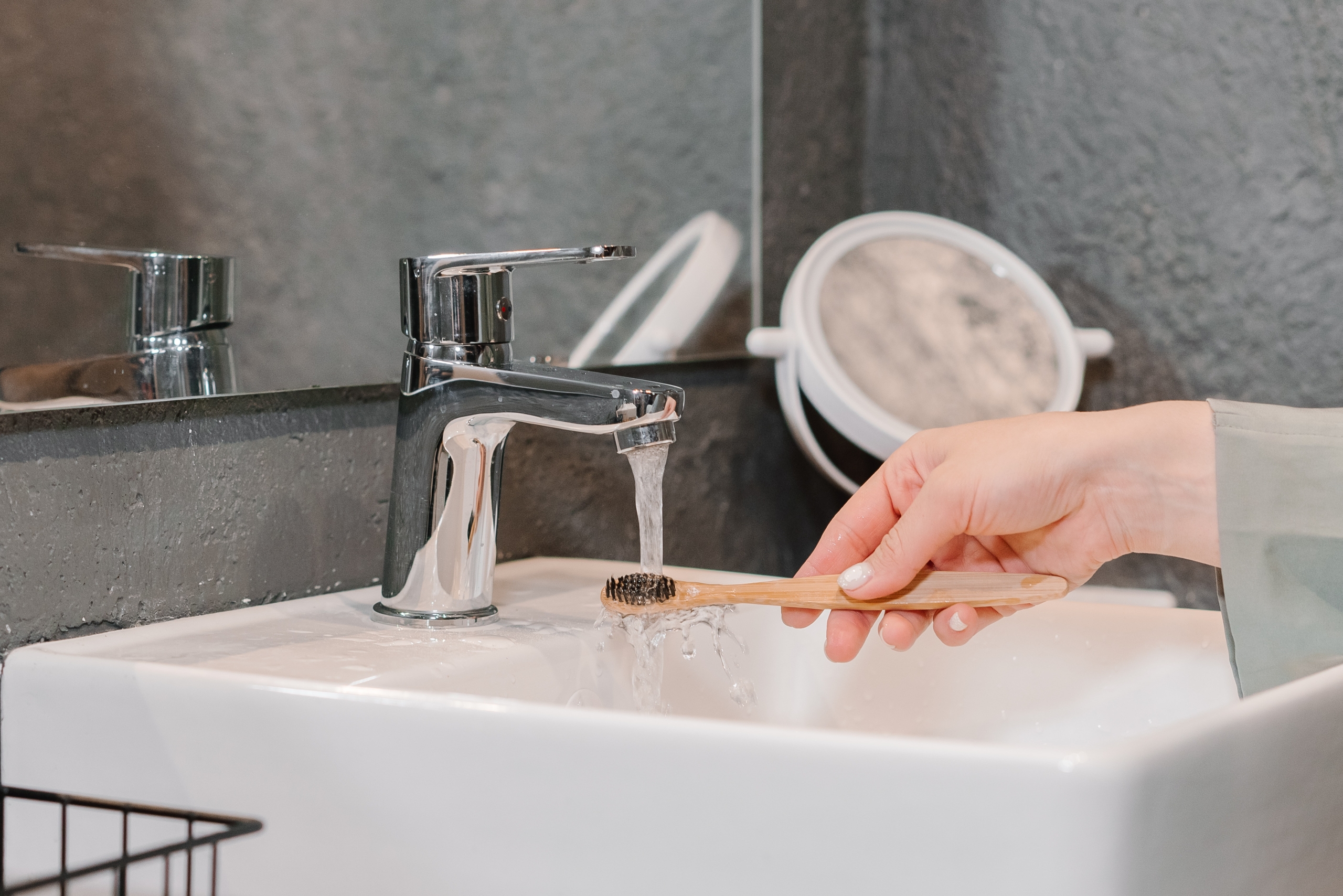
Brushing and brushing teeth is not only a guarantee of a beautiful smile, but also one of the pillars of our body’s health. If we want to maintain proper oral hygiene, we should brush our teeth at least twice a day, and supplement our daily care with flossing and rinsing.
The only question that remains is, how can we change our habits to those that are more eco-friendly and in line with zero waste principles? Is it really difficult, demanding and expensive?
When we consider introducing zero waste principles into our bathroom, and especially in the aspect of oral hygiene, we must realize from the very beginning that in fact almost all the cosmetics and instruments we use are non-organic.
Traditional toothbrushes made of plastic are further non-recyclable products, so they stay in our environment for hundreds of years. All other products, such as toothpaste, mouthwash and even dental floss are also packaged in non-ecological plastic. Therefore, the first step we should take if we want to change our habits is to eliminate plastic. How do we do it and what will help us do it?
We have already established that plastic toothbrushes are ecological evils. The question is, what to replace them with? Well, on the market we can already find their natural replacements in the form of bamboo toothbrushes without much trouble. What’s more, we can already buy them in almost every drugstore and even larger supermarkets.
What makes them better for the environment? Their shaft is created from biodegradable bamboo, while the bristles are usually bionylon or carbon fiber, plus they are packaged in recycled paper boxes rather than plastic.
This is a lesser-known and definitely more exotic alternative to the plastic toothbrush. A miswak is a branch from an acacia tree, the tip of which, when gently skinned and soaked in water, resembles a toothbrush. Interestingly, in its case, we can dispense with toothpaste altogether, since the ingredients contained in it, such as silica, tannin and vitamin C, successfully replace it for us. However, we do not hide the fact that this option is more difficult to access than a bamboo toothbrush, but nothing difficult for the willing.
A substitute for toothpastes from plastic tubes can be their natural counterparts in the form of paste or powder sold in glass with metal caps. They are just as effective, but when we’re done with them with peace of mind we can continue to use the jar for other purposes or throw them away in glass and metal, respectively, which will then be recycled.
Even as children, we were taught not to brush our teeth or hands under running water. However, we still sometimes forget to do so, and not wasting water is a basic principle of zero waste tooth brushing.
We spend an average of 2 to 3 minutes brushing our teeth, while in the same time an average of 40 liters of water will fly from the tap. If you want to make a practical change, use a porcelain cup for brushing. You don’t have to buy one specifically, you can use any of your kitchen supplies – it’ll work great too, and you’ll only use less than half a liter of water to rinse your mouth and toothbrush.
main photo: pexels.com/Mikhail Nilov